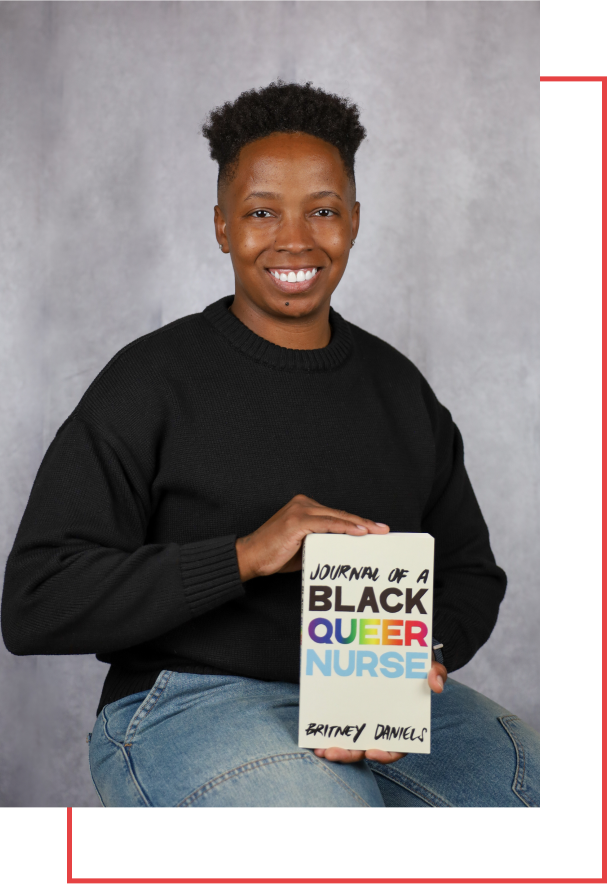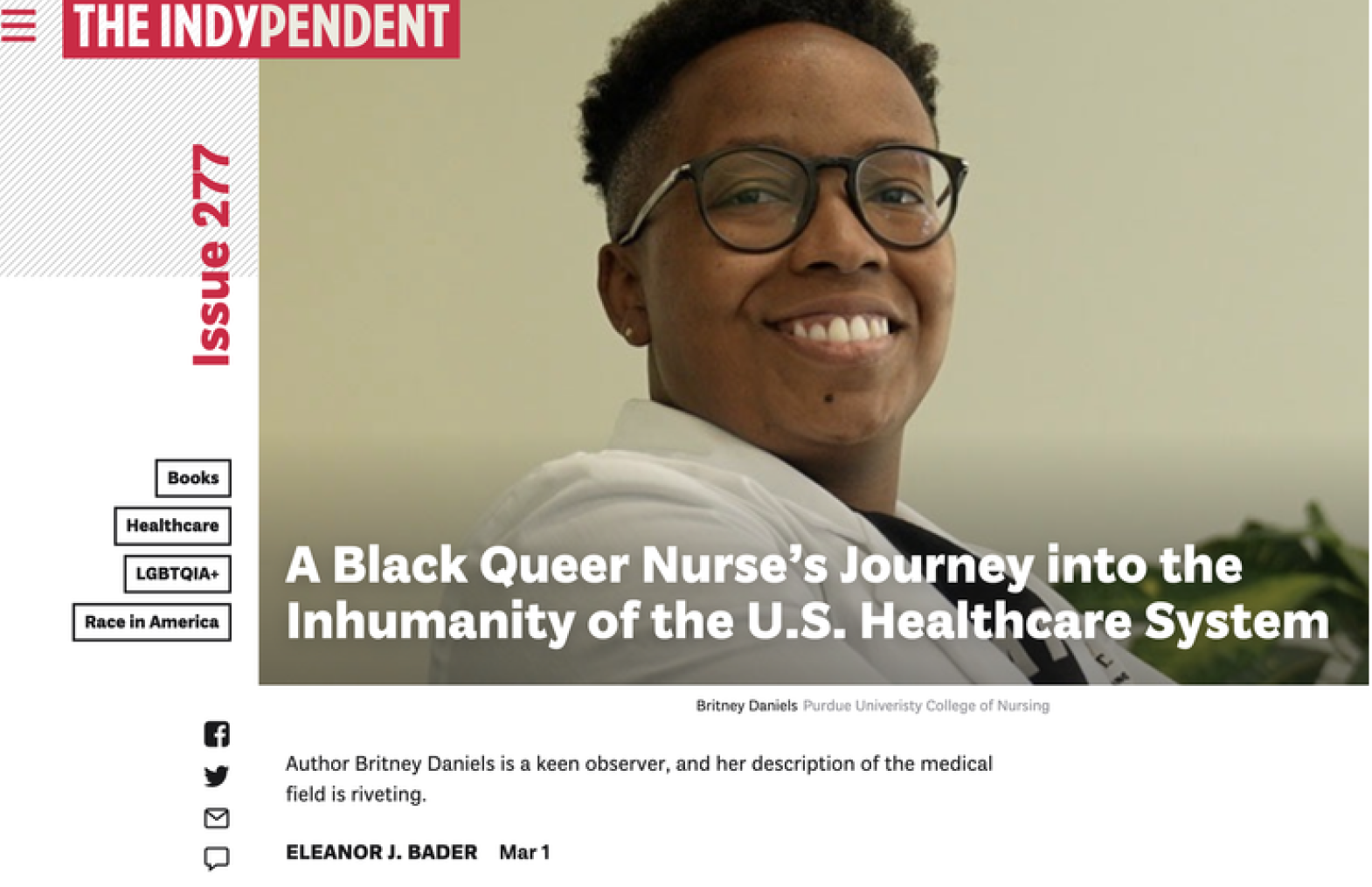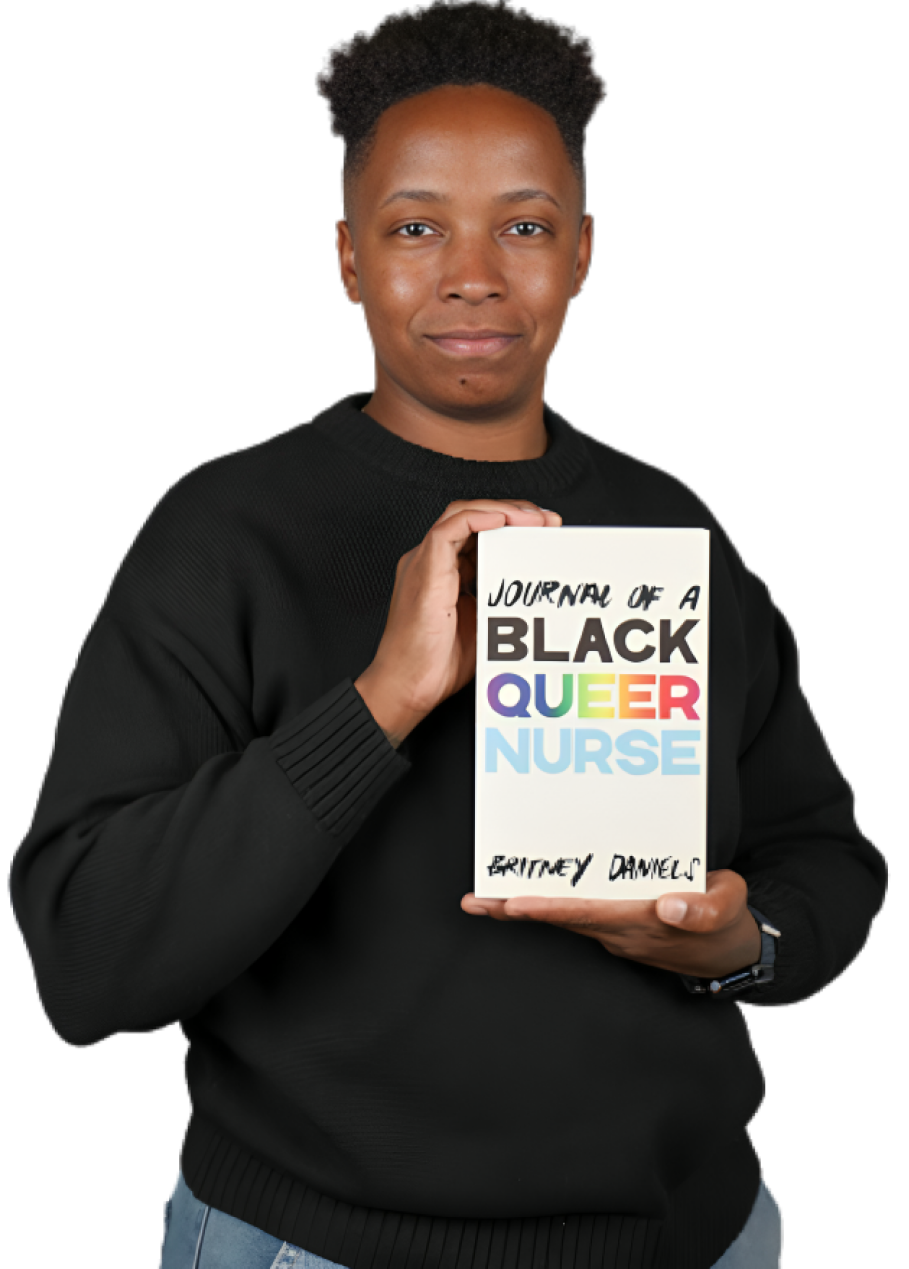
Black
Queer
Nurse

black queer
nurse
About Us
Britney Daniels, MSN, RN, is a Black queer travel nurse and social advocate who has worked in hospital emergency rooms all over the US. Daniels holds a bachelor’s and master’s degree in nursing with a concentration in nursing leadership. She is currently working on her Doctorate of Nursing Practice degree. Journal of a Black Queer Nurse is her first book.
Speaking Engagements
Lorem Ipsum is simply dummy text of the printing and typesetting industry. Lorem Ipsum has been the industry’s standard dummy text ever since the 1500s, when an unknown printer took a galley of type and scrambled it to make a type specimen book.
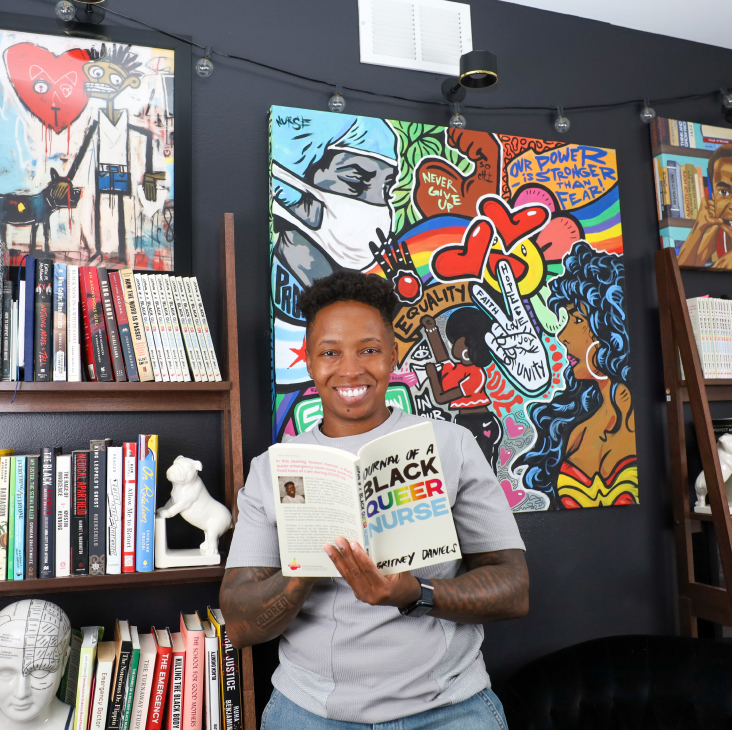
black queer
nurse
black queer nurse
Praise for Journal of a Black Queer Nurse
In this searing, honest memoir, a Black queer emergency-room nurse works the front lines of care during COVID-19.
Britney Daniels is a Black, masculine-presenting, tattooed lesbian from a working-class background. For the last five years, she has been working as an emergency-room nurse. She began Journal of a Black Queer Nurse as a personal diary, a tool to heal from the day-to-day traumas of seeing too much and caring too much.
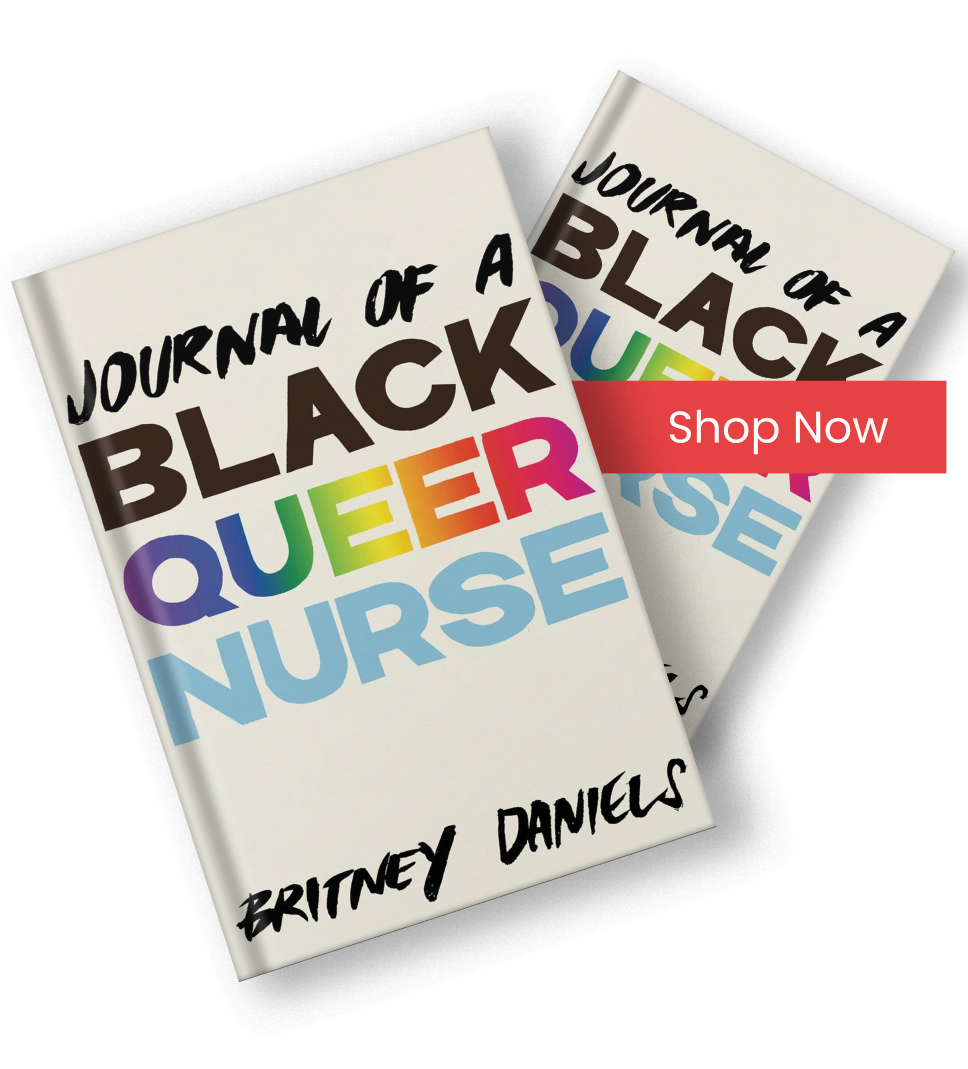
2024 Event Schedule
for Britney Daniels
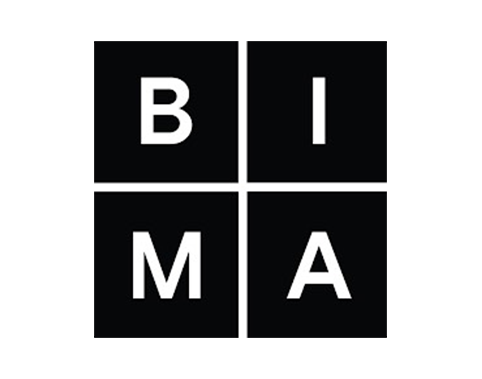
Bainbridge Museum
Thursday, August 8th
550 Winslow Way East, Bainbridge Island, WA 98110

University of Chicago
Saturday, September 21
University of Chicago Discover Leadership Program

Beloit College Keynote Speech and Classroom Visits
Tuesday, September 24-Wednesday, September 25
Beloit College Keynote Speech and Classroom Visits: 700 College St, Beloit, WI 53511

Keynote Speech
Tuesday, October 7- Wednesday, October 8
Duquesne University School of Nursing 600 Forbes Ave, Pittsburgh, PA 15282

Keynote Speaker University of Louisville
Wednesday, October 16-Thursday, October 17
2301 S 3rd St, Louisville, KY 40292
BRITNEY DANIELS IN THE PRESS
In her Prologue to Journal of a Black Queer Nurse, Britney Daniels tells readers that the book is “the story of a Black, masculine-presenting, tattooed lesbian and her head-first crusade into the nursing world, the COVID-19 pandemic, and oppression.”
And, of course, it is. But it is also a personal tale of overcoming poverty and confronting racism while simultaneously naming the many flaws in the U.S. health-care system. Daniels is a keen observer, and her description of the ways patients fall through cracks created by classism, homophobia, racism, sexism, transphobia, and xenophobia is riveting. What’s more, her outrage is palpable, strengthened by examples of the condescension and disregard both patients and staff of color routinely experience.
